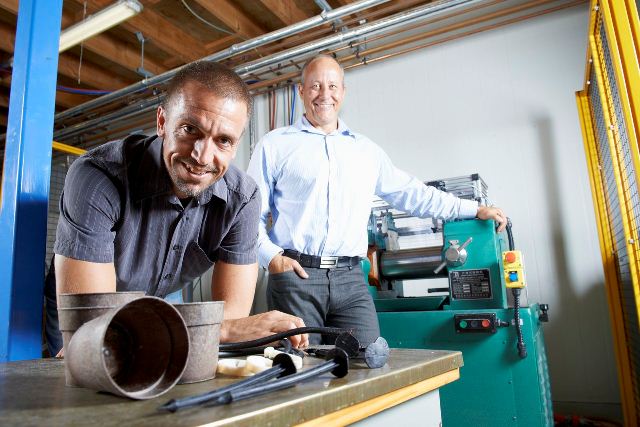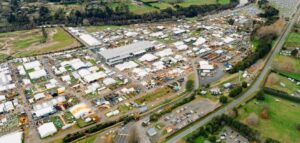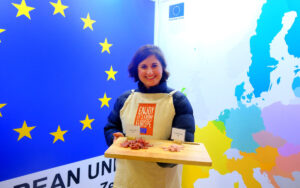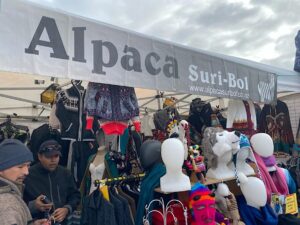Company finds way to turn blood into plastic
Waikato University spin-off company, Aduro Biopolymers, has found a way to turn blood into eco-friendly plastic.
A Waikato University spin-off company aims to put New Zealand on the map with ground breaking technology. The company, Aduro Biopolymers, has found a way to turn blood into an eco-friendly plastic.

“It is true that we make plastic out of blood,” says researcher Dr Johan Verbeek, “But it is not as gory as it sounds.”
Aduro’s research specialises in the development and commercialisation of eco-friendly materials derived from animal co-products, in a cost effective way. Novatein is the company’s lead material. Based on research by Dr Verbeek and his team at the School of Engineering, Novatein is a bio-plastic made from blood meal, a co-product of the red meat industry.
Blood meal is generally used in agriculture for its fertilising properties. It is produced from the runoff blood collected from the red meat industry. “It is a dark brown powder that is collected during meat processing and then dried. You wouldn’t even know it was blood,” Verbeek says.
“Blood meal is a protein, and a protein is a polymer. Polymers are basically very big molecules, if you will.”
They give plastics their structure.
“We have this process that we developed years ago, and that is what we do; we take the polymers and turn them into plastic.”
Novatein has been in development since 2007. The research group that Verbeek is part of is focused on environmentally sustainable materials. “Some of my colleagues had a relationship in the meat industry and we put two and two together and thought, well they have this protein,” he says. “And we can make something out of it that has more value.”
Making their first product was the most memorable moment for him: “When we found out that it could actually be done.”
Novatein is a world first in the plastics industry. The bio-plastic will be able to compete in price with petrochemical plastics, and Aduro CEO Darren Harpur says the company has significant marketable potential. The global plastics market is worth over a trillion dollars and currently bio-plastics represents 5-10% of that market and is growing quickly. Most industrial polymers and plastics are produced from non-renewable oil or gas-based resources.
An increasing awareness of environmental issues such as climate change and fossil fuel depletion has created a shift in consumer behaviour. This has increased interest in bio-plastics made from renewable resources.
Plastic is well known for its negative impact on the environment, with 8% of the world’s oil production is used to make it. The production of plastic exceeds 300 million tonnes annually.
Because of its longevity plastic has the potential to minimise our carbon footprint on the planet, but it is for that same reason that it also causes harm.
Harpur says that Novatein may be a solution for reducing plastic pollution. Novatein is both biodegradable and compostable, and inexpensive to produce. This increases the likelihood of the product being adopted by manufacturers and end users, he says.
The biggest challenge most bio-plastics face is high overhead cost of production, which makes the final product more expensive than conventional plastic. This gives Novatein a competitive edge.
Novatein is not being targeted as a direct replacement for any particular plastic, Harpur says. Their intention is to offer a product that is fit for purpose.
It is not a food-contact product, but is best-suited for agricultural and horticultural applications. It is also not suitable for applications that require high and sustained strength and long-term durability, he says.
As a manufacturing trial Aduro has successfully produced plant pots, weed mat pegs and measuring spoons. However, Verbeek says: “The story behind the spoon was that they had a spare mould and they just wanted to see if it would work. You wouldn’t want to eat from it.”
Aduro’s commercial potential for manufacture and export of goods has attracted interest from a variety of organisations.
Most recently Sir James Wallace invested in Aduro and has joined the board. Wallace Corporation, by volume, is New Zealand’s largest service rendering business.
Aduro has also secured partnership with Sydney-based Meat & Livestock Australia Ltd. The Australian company will co-fund development of Novatein in the Australian market. Verbeek says that there are other product ideas in the works but they are confidential at this stage. Aduro hopes to see Novatein in commercial use by 2016 or 2017.
Novatein’s success has resulted in making the finals of the inaugural KiwiNet Research Commercialisation Awards for Best Commercial Deal, with the winners to be announced on June 19.
Verbeek says that Harpur and his team have worked very hard to make that happen. The best thing about becoming a finalist is the opportunity to showcase what they are doing, says Verbeek.
Verbeek is looking forward to exciting new developments within Aduro. He says he enjoys working with something new, and seeing new products go on the market.
“And seeing students and other people learn from it .That’s what is fun.”




